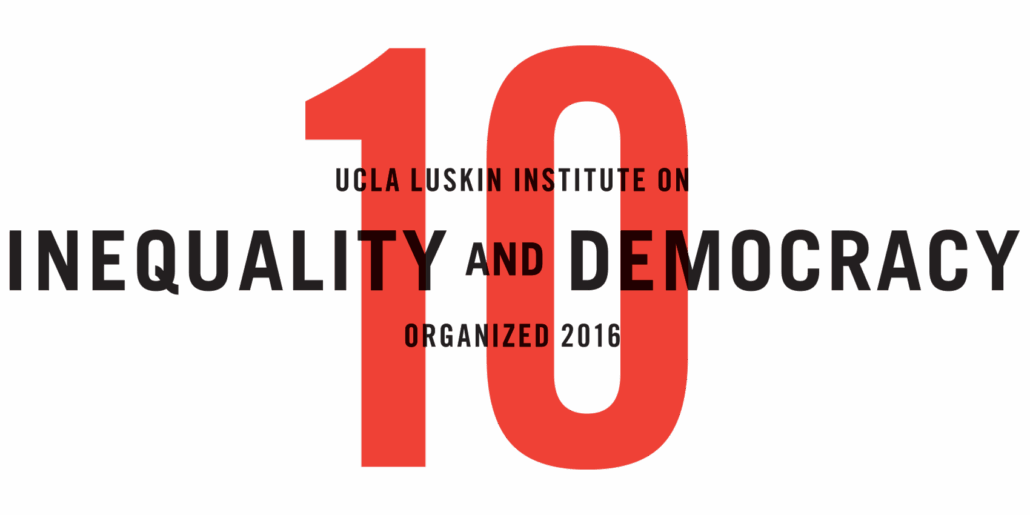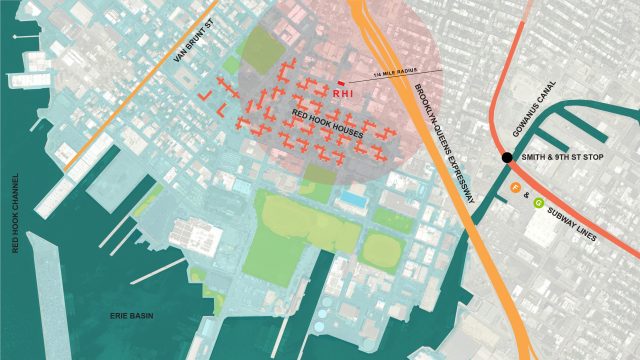Map of Red Hook, Brooklyn, shows the location of Red Hook Initiative (RHI), Red Hook Houses, and physical and environmental conditions, including Hurricane Sandy storm surge extents.
Image credit: Kian Goh using Google Maps and Hurricane Sandy flood maps by the New York Times
A More Public Resilience? On Housing Justice and Climate Justice
Kian Goh, Urban Planning, UCLA
In the aftermath of Hurricane Sandy, in New York City in 2012, grassroots movements involving community organizations, public housing residents, and activists and volunteers led notable post-storm recovery efforts. In neighborhoods such as Red Hook, Brooklyn, and the Lower East Side, Manhattan, they showed how strong social relationships and community building around shared socioeconomic and housing struggles are critical to social and environmental resilience. But while the city has advanced its climate change mitigation and adaptation initiatives, fewer efforts have been made to shore up the housing system in the city as a whole as it confronts an affordability crisis. These circumstances present an opportunity to reconsider the relationship between urban housing, public infrastructure, and just climate futures. This research project is prompted by two phenomena. The first is the increasing urgency of climate change and the emergence of a grassroots-legislative movement in the U.S. around the Green New Deal, a set of policies to drive renewable energy and a low-carbon economy, eradicate poverty, and protect against climate change. The second is the continuing housing affordability crisis in many cities across the country and a renewed push by activists and researchers for a new public housing program. This project asks: How does collective, public housing contribute to more sustainable and equitable climate change responses? It examines how place- and community-based resilience “from below” meets an expanded notion of urban public and urban housing. More broadly, it contributes to theorizing the relationships between urban housing justice and climate justice.




